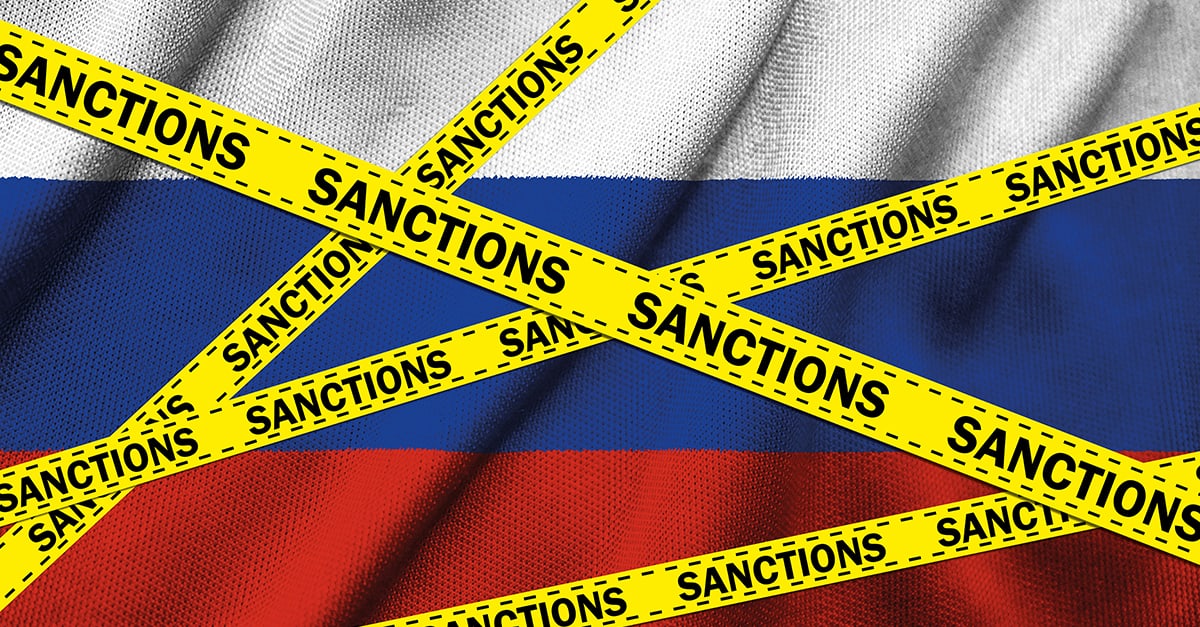Academics and analysts acknowledge the severity of Russian sanctions. Nevertheless, there are still a few ways around them.

Russian sanctions by the US, the UK and the EU have impressed Kremlin experts. They are “incredibly powerful,” says Howard Mendelsohn, chief client officer at Kharon, a data-analytics company focused on international commerce.
“Russia will not be able to buy chips from the US or Taiwan, neither will the country get aircraft spare parts for its existing fleet. So pretty soon, planes will not function,” noted Sergei Guriev, a professor at Sciences Po Paris and former chief economist of the European Bank for Reconstruction and Development, during a webinar organized by Princeton University.
And the list of missing crucial products such as software goes on: Dropbox will not work; Zoom will be silenced. “Half the reserve that the Central Bank has accumulated in the Occident will be frozen; Russia will have to live without Swift, Visa or Mastercard,” he insisted.
The ruble is suddenly 30% cheaper and Russian stocks sold in London are experiencing a fire sale while a share of Gazprom is worth a penny and Sberbank’s P/E is now 0.4 pence. “It will be a huge shock, but not a macroeconomic meltdown,” continued Guriev.
Despite the density of sanctions against Russia and its Belarus ally, the country’s GDP should only contract 20% during the second quarter, while the fall in GDP for 2022 would be limited to 3.5%, according to JP Morgan’s forecast.
Where is the collapse? All fingers point to Sberbank and Gazprombank. These financial institutions, which facilitate energy trading, are absent from banks banned from the Swift system. Oil revenues are still trickling through the pipeline back to Russia.
Sanctions also can be bypassed as each part of the world has its start dates to forbid business with Russia and its list of contraband, notes Alex Brandt, a counsel the international law firm Reed Smith. “The devil is in the details.”
Bitcoin and other cryptocurrencies and digital assets could be the new channel that brings money in and out. According to the online publication Bankless Time, daily Bitcoin-ruble trading volume has increased more than 270%.
“We have to keep an eye on cryptocurrency, especially since crypto exchanges are no longer the Wild, Wild West of 10 years ago,” says Mark Nakhla, an executive vice president at Kharon.
Then, again Russian multinationals are good at evading controls.
James Disalvatore, a senior research analyst at Kharon, describes the opaque structure behind a few Russian banks.
Sovcom, one of the financial institutions under blocking sanctions, has a subsidiary, including USM LLC in London, a property in Ireland, and three US subsidiaries. “There are 22 subsidiaries publicly listed, but the real network is much larger; it has 100 entities around the world,” he says.
Another example is oligarch Alexei Mordashov’s empire. Under Europe’s surveillance, the so-called richest oligarch owns steel manufacturer Severstal, which is the parent company of private investment group Severgroup in Russia. Severgroup, in turn, is linked to private Cyprian firm Rayglow. Severstal counts approximately 80 subsidiaries under its wing. Will regulators be able to sanction all these entities?



